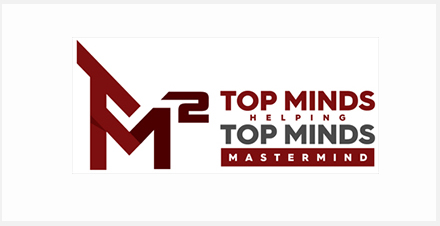As a project or program manager leading a digital transformation project with the responsibility for overseeing and implementing change within your organization, do you struggle with the following questions:
- How can we successfully implement digital transformation in our organization?
- What are the critical steps involved in digital transformation?
- How can we overcome resistance to change within our organization?
- How do we ensure our digital transformation initiatives align with our business goals?
- What are the best practices for measuring the success of our digital transformation efforts?
- How can we ensure our employees are trained and equipped to use new technologies?
- What risks and challenges are associated with digital transformation, and how can we mitigate them?
- How can we stay up-to-date with the latest digital technologies and trends?
A study by Harvard Business Review found that businesses that successfully undergo digital transformation are more likely to experience significant revenue growth and profitability than those that do not.
Digital transformation is not just about technology.
Digital transformation is the catchword of the 21st century, and rightfully so. With the proliferation of digital technologies, businesses have been forced to adapt or risk becoming obsolete. The digital transformation process involves integrating technology into all company areas, from marketing and sales to HR and finance. But how does one go about implementing this transformation successfully? That’s where books on digital transformation come in.
One thing that may not immediately come to mind when considering digital transformation is its impact on employee engagement and productivity. Digital transformation can provide employees with new tools and technologies to streamline workflows and improve job satisfaction. By investing in digital transformation, businesses can create a more positive and beneficial work environment for their employees.
Here Are The Top 10 Books on Digital Transformation You Need to Read
These books are a must-read for anyone who wants to understand the digital transformation process and learn how to implement it successfully in their organization.
- “The Digital Transformation Playbook: Rethink Your Business for the Digital Age” by David L. Rogers. David L. Rogers is a globally recognized expert on digital transformation, and his book is a comprehensive guide to help businesses transform themselves for the digital age. The book is divided into four parts, each providing a step-by-step approach to digital transformation. Rogers presents case studies and real-world examples to illustrate his points, making this an engaging and practical read.
- “Leading Digital: Turning Technology into Business Transformation” by George Westerman, Didier Bonnet, and Andrew McAfee. This book is written by three experts in the field of digital transformation who provide a roadmap for businesses to embrace digital technology and use it to transform their operations. The book contains case studies and practical examples of achieving digital transformation, making it a valuable resource for project and program managers.
- “Digital Transformation: Survive and Thrive in an Era of Mass Extinction” by Thomas M. Siebel. Thomas M. Siebel is a technology industry veteran, and his book is a thought-provoking look at the impact of digital transformation on businesses. The book is divided into three parts, each addressing a different aspect of digital transformation. Siebel’s insights and observations are based on his extensive experience in the field, making this a must-read for anyone who wants to stay ahead of the curve.
- “Digital to the Core: Remastering Leadership for Your Industry, Your Enterprise, and Yourself” by Mark Raskino and Graham Waller. Mark Raskino and Graham Waller are experts in the digital transformation field, and their book is a practical guide to help leaders navigate the challenges of digital transformation. The book contains case studies and examples of companies successfully transforming themselves for the digital age, making it an essential read for project and program managers.
- “The Lean Enterprise: How Corporations Can Innovate Like Startups” by Trevor Owens and Obie Fernandez. The Lean Enterprise is a guide to help large corporations adopt the principles of lean startups and innovate like startups. The book provides a step-by-step approach to implementing lean startup principles in a large organization, making it a valuable resource for project and program managers.
- “Digital Transformation at Scale: Why the Strategy Is Delivery” by Andrew Greenway, Ben Terrett, Mike Bracken, and Tom Loosemore. Digital Transformation at Scale is a practical guide to help large organizations implement digital transformation successfully. The book contains case studies and examples of companies successfully transforming themselves for the digital age, making it an essential read for project and program managers.
- “The Innovator’s Dilemma: When New Technologies Cause Great Firms to Fail” by Clayton M. Christensen. The Innovator’s Dilemma is a classic book on innovation and disruption, which is essential for anyone who wants to understand the impact of digital transformation on businesses. Christensen presents a compelling case for why established companies fail to adapt to disruptive technologies and how new entrants can disrupt established players. The book provides valuable insights for project and program managers looking to innovate and stay ahead of the curve.
- “The Network Is Your Customer: Five Strategies to Thrive in a Digital Age” by David Rogers. David Rogers’ “The Network Is Your Customer” is a comprehensive guide to help businesses embrace digital transformation and use it to their advantage. The book provides a step-by-step approach to digital transformation, with practical advice and case studies to illustrate each step. This makes it an invaluable resource for project and program managers looking to drive organizational change.
- “Digital Transformation: Build Your Organization’s Future for the Innovation Age” by Lindsay Herbert. Lindsay Herbert’s “Digital Transformation” is a practical guide to help businesses embrace and use digital transformation to their advantage. The book provides a step-by-step approach to digital transformation, with helpful advice and case studies to illustrate each step. This makes it an essential read for project and program managers looking to drive organizational change.
- “The Art of Business Process Management: A Beginner’s Guide to BPM” by Mathias Kirchmer. Mathias. Kirchmer’s “The Art of Business Process Management” is a beginner’s guide to BPM, an essential part of digital transformation. The book provides a step-by-step approach to BPM, with practical advice and case studies to illustrate each step. This makes it an invaluable resource for project and program managers looking to improve their organization’s processes and drive change.
Digital transformation is an intricate process that requires careful planning and execution. These top 10 books on digital transformation provide valuable insights, practical advice, and real-world examples to help project and program managers navigate the challenges of digital transformation and drive change in their organizations. By reading these books, project and program managers can gain the knowledge and skills they need to successfully implement digital transformation in their organization and stay ahead of the curve in today’s digital age.
Create a roadmap and implementation plan.
If you want to stay competitive in today’s digital age, digital transformation is no longer optional. Businesses of all sizes and industries must embrace digital change to remain relevant and thrive long-term. To get started, define your vision and goals for digital transformation, assess the current state of your organization, and create a roadmap and implementation plan for digital transformation initiatives.











